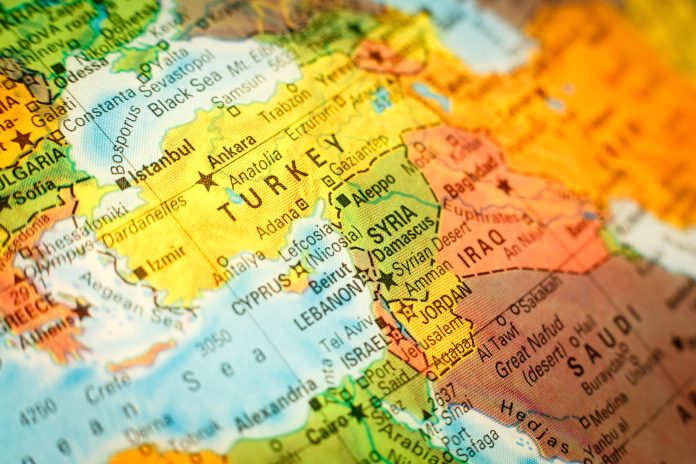[ad_1]
Within the framework of its roundtable event “Syria Series,” the Stimson Middle East and North Africa (MENA) Program hosted its third online event, entitled Gulf Perspectives on Syria: Saudi Arabia, UAE and Qatar, by Chatham House Rules, November 23, 2022. Three experts from each Gulf state discussed their views on Syria with experts and officials from different EU countries, Turkey, Switzerland, the United States and Russia.
The rich discussion can be summarized in the following points:
- Syria is no longer a priority in the Gulf compared to 2011-2019 period
- Political and economic normalization is conditional on domestic and foreign policy reforms, and
- Without US/EU vision and engagement to resolve the political impasse, the Gulf will struggle to deal with the regional consequences of ongoing conflict.
The roundtable was moderated by Kawa Hassan, Stimson Europe Executive Director, Middle East and North Africa Program Director and Senior Fellow, and Abdulla Ibrahim, Non-Resident Fellow, Stimson Middle East and North Africa Program.
Syria is no longer a priority
Compared with 2011-2019, the security and foreign policy priorities of the three Gulf states in 2022 do not include Syria. Adapting to the challenges of the war in Ukraine and its implications for the global order is a daunting task for Gulf states. The diplomatic balance between the US/EU and Russia and maintaining relations with trade and energy partners such as India and China are top priorities. Maritime Security, Cyber Security, Iran and Yemen are next. Syria is no longer a top priority. From 2011 to 2019, the three Gulf states worried about the spread of armed groups and terrorism, in addition to growing Iranian influence in Syria.
For now, the threat of radicalization has dissipated since the Islamic State’s territorial defeat in 2019, with Iran’s growing influence tamed by continued Israeli strikes. The previous Gulf policy of supporting the rebels militarily to force change in Damascus has stalled since Russia intervened in 2015. Dynamics within the Gulf have produced differing stances against the Islamist-dominated Syrian opposition.
After the Arab Spring, the rise of political Islam has been viewed differently. Qatar sees Islamists in power in Syria and Egypt as potential allies. Other countries, including the UAE, were alarmed. The military setbacks faced by the Syrian opposition and the weakening of external support (ie US, EU) for the Syrian opposition makes it irrelevant to the political process in the eyes of the Gulf states.
conditional normalization
The three Gulf states are interested in maintaining Syria’s territorial integrity, promoting political stability through reforms and reducing Iranian influence. The Kingdom of Saudi Arabia (KSA) does not want to see a fragmented Syria for fear it will have spillover effects on the region. Riyadh wants to reform and reduce Tehran’s influence before achieving any political or economic normalization with Damascus.
The UAE has a different view on how to deal with the same reforms and the issue of Iranian influence. For Abu Dhabi, where engagement with the regime would gradually wrest it from Iran, offering incentives for reform might make better progress than setting unrealistic conditions that have never worked in more than a decade. Qatar is interested in seeing efforts towards accountability and justice ahead of any normalization with Damascus. Notably, U.S. secondary sanctions pose a formidable obstacle to the resumption of any Gulf-sponsored economic activity with Damascus.
In order to use normalization as an incentive, Gulf states must be able to exert leverage over Damascus to ensure compliance with agreements and commitments. This doesn’t exist today. The KSA’s economic ties to Syria are too weak to be used as leverage to ensure the sustainability of reforms. Politically, the Gulf has lost its cards. Even the Syrian opposition is no longer based in the Gulf, but is more concentrated in Turkey. For the UAE, the humanitarian situation in Syria is worrisome, but Abu Dhabi has other conflicting priorities, such as Yemen, which raises considerable financial and political concerns. Shrinking financial resources in the Gulf also limit potential aid to Syria, which in turn reduces leverage over Damascus.
Existing Saudi and UAE ties to Syria are minimal and purely for security coordination against terrorism and drug smuggling such as Captagon. Against all expectations, the Syrian government has partnered with Riyadh to fight international crimes such as drugs by sharing information. These limited aspects of cooperation show the usefulness of the Syrian government, even though they bear full responsibility for the deteriorating situation. The current situation in Syria is not ideal for the Gulf region, but given its lack of influence, the absence of a direct threat from Syria, and the emergence of more pressing international crises, maintaining the status quo is the goal.
US/EU vision required
One of the underlying motivations behind Saudi Arabia’s withdrawal from Syria is the lack of US vision and commitment to help resolve multiple Middle East conflicts. The UAE also complained about the lack of US/EU leadership and the need for an international vision of Syria’s future. Saudi Arabia respects U.S. sanctions to avoid harming its economic interests, but Riyadh questions their ability to bring about political change. Iran is a good example where international sanctions do not incentivize positive behavioral change. Qatar is concerned about the severe humanitarian cost of sanctions and the importance of efforts to reduce their impact.
All in all, the Gulf has no viable options when it comes to Syria, while the West is distracted by its own problems. In this scenario, regional proposals would continue to float, but would be constrained by a hardline Damascus, limited resources to re-engage in Syria, and deterrence sanctions.
Reports from previous roundtables
[ad_2]
Source link



